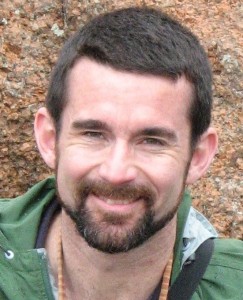 One of my favorite radio pundits is EJ Dionne, so I was intrigued to read in my morning paper his opinion piece, asking “where are our faith leaders?” In short, he argues that in today’s society discussions about religion have mainly been subsumed under political discussion of issues about which religious people care (or are about which they are thought to care).
One of my favorite radio pundits is EJ Dionne, so I was intrigued to read in my morning paper his opinion piece, asking “where are our faith leaders?” In short, he argues that in today’s society discussions about religion have mainly been subsumed under political discussion of issues about which religious people care (or are about which they are thought to care).
Thus, he argues, “Religion is talked about a lot, but mostly superficially”—and the result is that we have a lot of political debate, and perhaps even a lot of politicians, seeming to tell the religious what to think, but a distinct and dire shortage of engaged religious voices bringing a primarily religious and theological perspective to our civil discourse.
(As an aside—if you have not noted from my previous postings, I am a Christian of a conservative theological bent, yet while I may disagree on policy matters with Mr Dionne, I find his call for an engaged theological voice extremely compelling.)
If we are lacking a genuine religious element in our national and international civil dialogues, I think the same can be said—perhaps even more so—in medicine. Yes, we have academic journals and study centers that have religion in medicine as their focus. Yes, we have organizations for religious medical professionals. Yes, we even have the occasional article in “mainstream” medical journals addressing religious topics, be they short term medical missions, discussions of end of life care, or prayer in medicine.
Nevertheless, “religion in medicine” is notable for its absence—in part because we have chased it out. How often are a patient’s religious views seen as quaint cultural idiosyncracies, often thought of as barriers to be dealt with in trying to implement a plan of care? How often are topics of a “religious” nature left for the pastoral care team to discuss? This is not at all intended to dismiss pastoral care—chaplains are a needed and vital part of the team—but for the physician to completely abdicate any discussion of religious themes, and leave these to be dealt with solely by the chaplains, is a disservice to our patients.
From my personal perspective, my religion is integral to who I am as a physician. Our religion can shape how we understand universal truths, and as a physician this compels me to seek the best in evidence based medicine to care for my patients. My faith calls me to care for the poor, and this has a direct bearing on where and how I have chosen to practice.
Just as Dionne has pointed to the need for re-engagement of distinctively religious voices in our civil and cultural discourses, I think we also need to find ways to re-engage these voices in our medical discourse as well.
Of course, due sensitivity is needed to allow for differences of religion, differences of perspective, and matters of individual conscience. Yet we cannot truly address these issues in the medical realm unless we engage with them. Avoiding religion does not address it—it sidelines it, and for our patients who value their religion and are nourished by their spirituality, avoidance of religion by doctors and by “medicine” tells them their perspectives are unimportant.
Whether it be by a reintroduction of virtue based education in professionalism, by exploring interprofessional training models that explicitly include theological perspectives, or by opening new avenues for discussion and dialogue in our medical journals (especially the “big three”: NEJM, JAMA, and The BMJ), we sorely need to find ways to restore the visionary, prophetic, and pastoral elements of religious voices to our medical discourse.
“Where there is no vision, the people perish.” Proverbs 29:18
William E Cayley Jr practices at the Augusta Family Medicine Clinic; teaches at the Eau Claire Family Medicine Residency; and is a professor at the University of Wisconsin, Department of Family Medicine.
Competing interests: “I declare that I have read and understood BMJ policy on declaration of interests and I have no relevant interests to declare.”